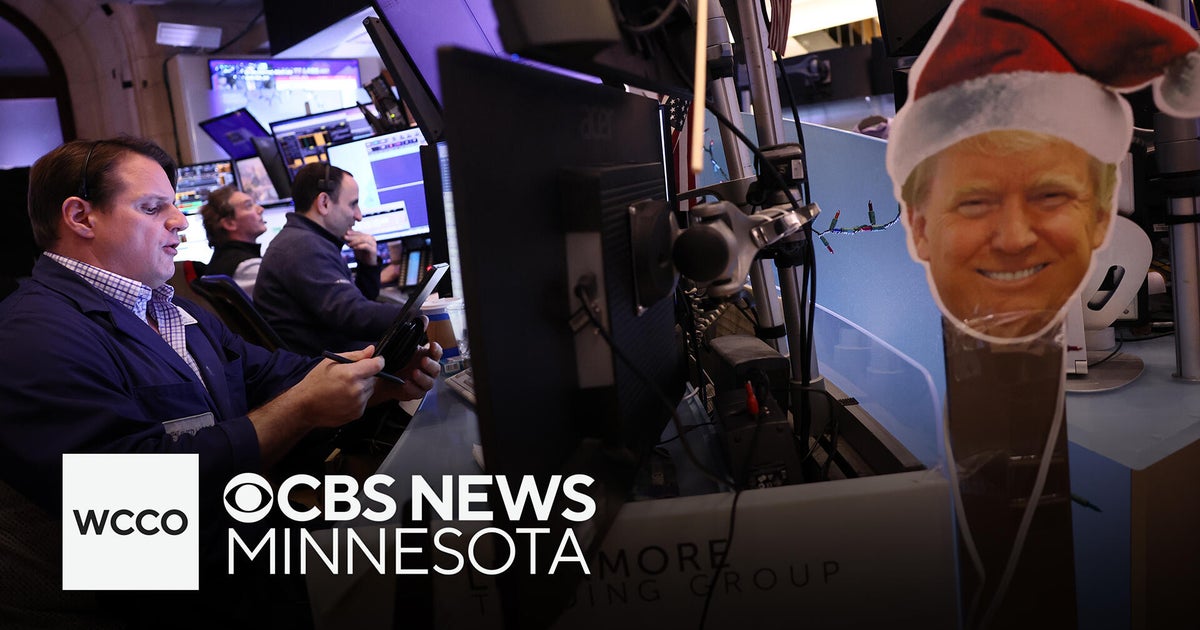
Dow Jones Dives: Stock Market Reaction to Trump Tariffs Announcement
The financial world experienced a seismic shift as the Dow Jones Industrial Average plunged on Friday, reacting sharply to President Trump's recent tariff announcements. This development sent ripples through the global economy, leaving investors and analysts scrambling to adjust their strategies. Let's examine the details of this significant market event and its potential long-term implications.
Understanding the Market Reaction
The stock market is inherently sensitive to geopolitical and economic policy changes. When President Trump unveiled new tariffs, it set off a wave of apprehension among investors. The tariffs primarily targeted key trading partners, particularly China, sparking fears of a possible trade war. This uncertainty forced the market into a tailspin, resulting in the sharp drop observed in the Dow Jones.
Historically, the stock market favors stability and predictability. Abrupt policy shifts can often lead to volatility, as investors reassess the economic landscape. The immediate reaction was a sell-off, indicative of the concern surrounding the potential economic fallout from these tariffs.
The Scope of the Tariffs
The new tariffs announced by President Trump were not isolated to a single sector but instead spanned various industries. These included significant levies on steel and aluminum imports. The rationale behind these measures was to protect domestic industries from foreign competition. However, while protectionist in intent, such tariffs often lead to increased costs for domestic businesses reliant on these imports, potentially stymieing growth.
With steel and aluminum being raw materials for many manufacturing processes, industries ranging from automobile to construction began bracing for possible cost hikes. These sectors had been accustomed to sourcing materials at competitive global prices, and the tariffs introduced an element of cost unpredictability.
Global Economic Implications
The reaction was not confined to the United States alone. Markets across the globe echoed the sentiment as international trading partners expressed discontent. Allies and adversaries alike were thrust into a scenario where retaliatory measures became a distinct possibility. This escalation of economic tensions could potentially lead to a tit-for-tat scenario, disrupting international trade flows.
Economies with significant export relationships with the United States began reassessing their strategies. The tariffs raised questions about the sustainability of existing trade agreements. As nations considered counter-measures, the potential for a full-blown trade war became a serious concern.
Investor Strategies in Tumultuous Times
Amid such market unrest, investors were left grappling with the challenge of safeguarding their portfolios. Defensive market strategies often become prominent during such times. Traditional safe-haven assets like gold and government bonds gained appeal, given their historical performance during periods of economic uncertainty.
For many investors, diversification remains a staple strategy to mitigate risk. By spreading investments across various asset classes, the potential negative impact of sector-specific downturns can be softened. Investors also began closely monitoring sectors less affected by the tariffs, realigning their portfolios to capitalize on relatively stable industries.
The Role of Market Sentiment
Market sentiment is a powerful force, capable of driving dramatic shifts in valuation, often beyond what economic fundamentals might suggest. While the Dow Jones experienced a significant dip, it is important to remember that market sentiment can change rapidly. Ongoing dialogues and negotiations between trading nations can ease investor fears, stabilizing market conditions.
Ultimately, the challenge lies in balancing expectations with prudence. For seasoned investors, maintaining a broader perspective and not succumbing to short-term panic is crucial. Decisions based on a holistic evaluation of economic indicators often prove beneficial in the long run.
What Lies Ahead?
The immediate future of the market remains shrouded in uncertainty. As we move forward, the responses from global leaders and economic bodies will profoundly impact the financial landscape. The willingness of nations to engage in constructive dialogue rather than retaliatory action could dictate the course of international trade relations.
Policy adjustments from the current administration may also play a critical role. Whether these tariffs are temporary bargaining tools or indicative of a long-term strategy remains to be seen. The outcome of any negotiations and policy shifts will be closely watched by investors worldwide.
Conclusion
The Dow Jones dive, spurred by the Trump administration's tariff announcement, underscores the complexities of the modern financial market. It highlights the delicate balance that exists between domestic policy initiatives and their global repercussions. As the world watches closely, adapting strategies to navigate these turbulent waters will be key.
Investors will need to remain vigilant, flexible, and informed to optimize their approaches and mitigate risks. In such dynamic environments, knowledge and adaptability become invaluable tools for anyone invested in the financial markets. The story of tariffs and their impact is still unfolding, promising further twists and turns in the world of global trade and economics.

